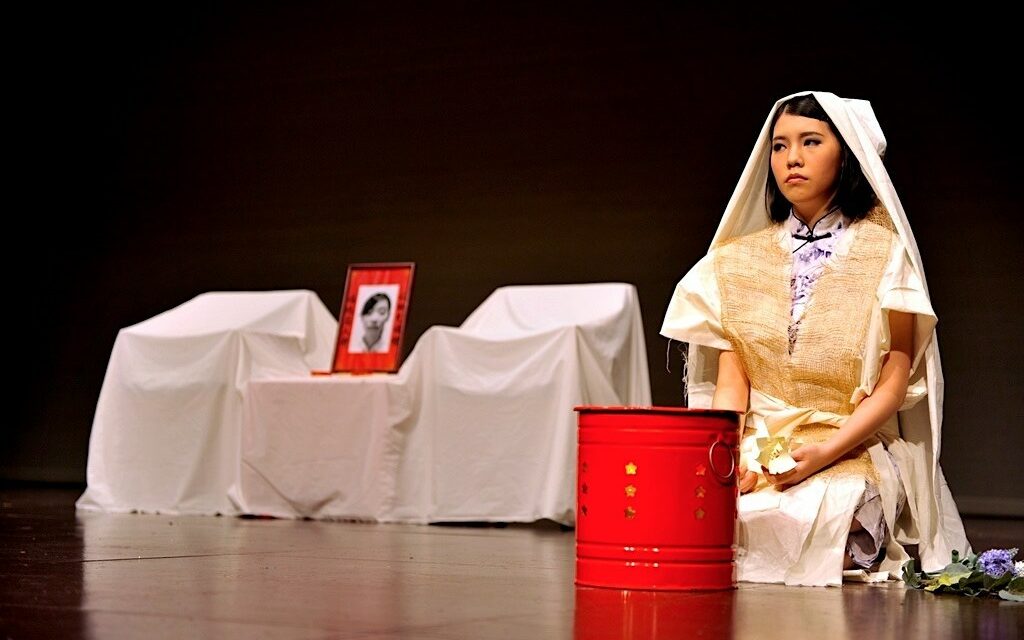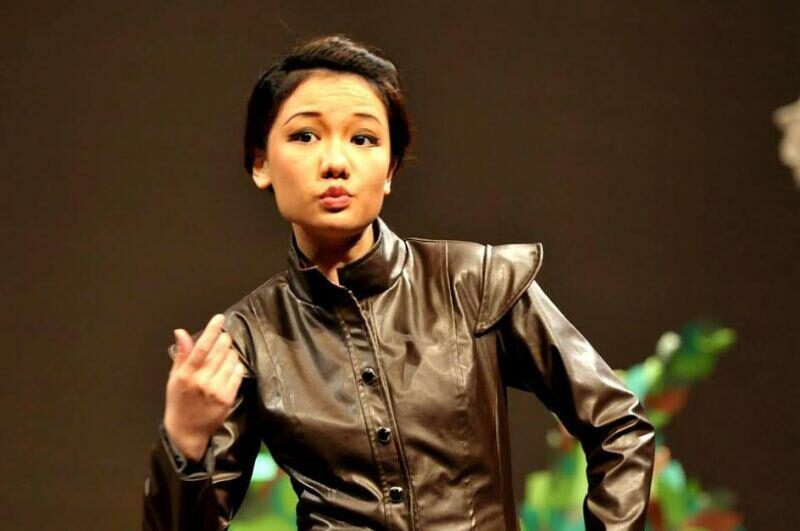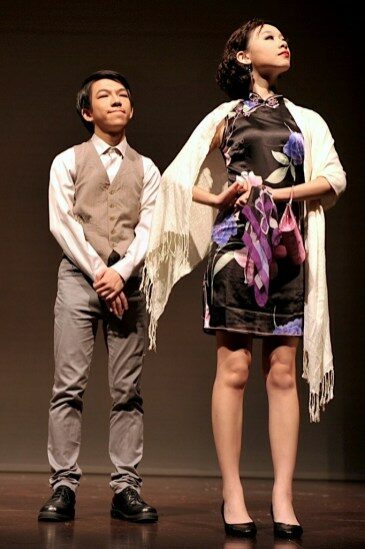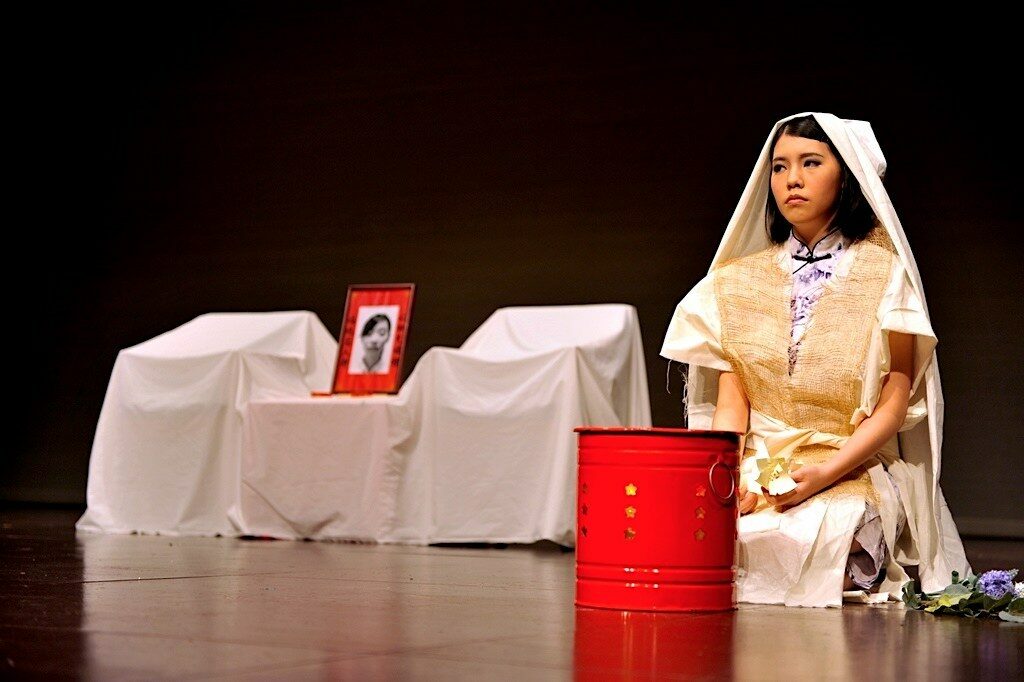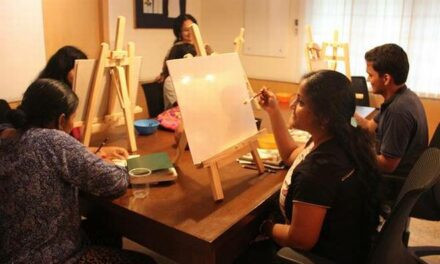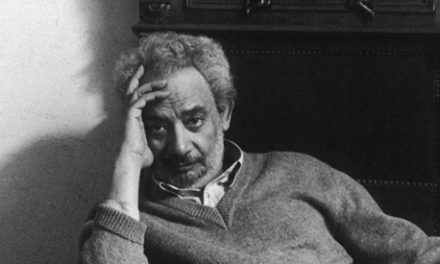Rosalind Wong didn’t plan to win the Hecklers Award 2016 for Best Director – but she did, walking away with Hong Kong’s top theatre prize at the tender age of 27. Nor did she expect the Shakespeare theatre group she founded as a student to end up collaborating with the prestigious Hong Kong Philharmonic Orchestra. But it will, as the brand-new concert and play Ode to Shakespeare premieres this month.
Wong’s obsession with Shakespeare beaned more than a decade ago, thanks to the annual drama productions at her secondary school, Marymount.
“He has written a stunning 33 plays,” she exclaims. “You are always able to relate to one of his characters, whether you’re someone falling in love, or out of love, or doesn’t want love, someone angry with his parents, or discriminated against.”
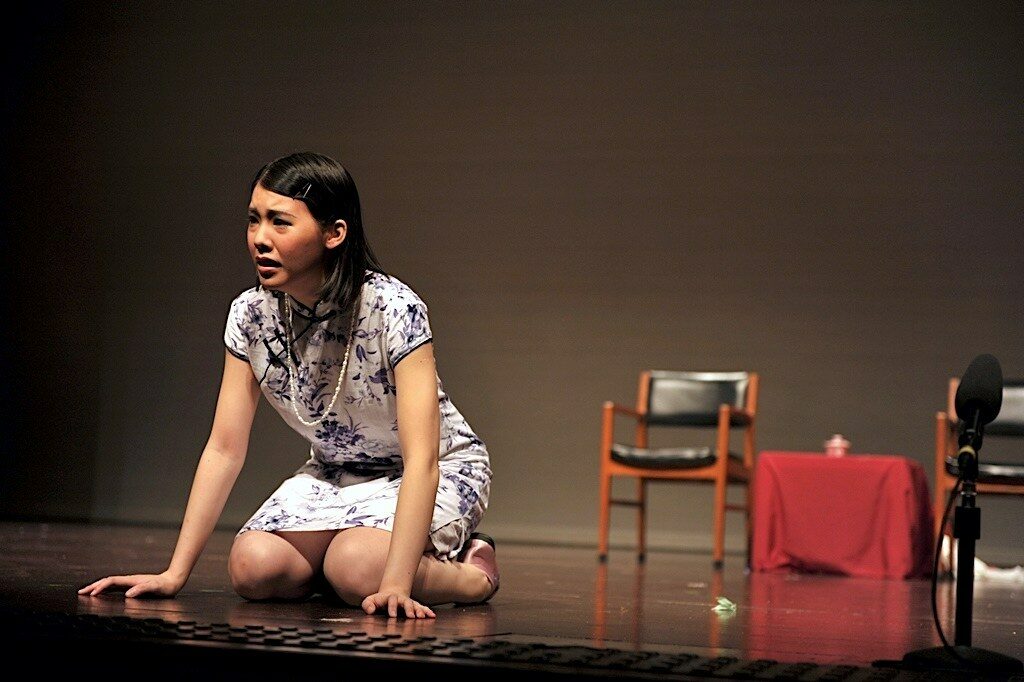
Ophelia mourns Hamlet’s “noble mind” which has lapsed into apparent madness in Hamlet (2012). Photo courtesy Shax.
The budding writer and actress followed her passion and studied English and education as undergraduate and comparative literature as a postgraduate at the University of Hong Kong. But during her undergraduate years, the Bard enthusiast was disappointed when she discovered that there weren’t any English drama productions at the university.
“There wasn’t an in-depth understanding of the playwright in Hong Kong,” she says. “Some had only heard of his great name. In modern society, Shakespeare is considered high-brow when it’s not supposed to be.”
Since then, she had tried to introduce Shakespeare to a wider local audience and “bring something new to the table.” That’s what led to Shax—short for Shakespeare—which she launched in 2010. Since then, the group has produced 13 major plays, along with shorter excerpts performed at local cultural events such as Peel Street Poetry’s annual Shakespeare tribute event An Evening with the Bard. Each year, Wong and her team put on two productions, one in Cantonese and another in English, ranging from the four great tragedies and all-time favorite comedies to lesser-known plays such as The Two Gentlemen of Verona.

Longaville, with a mop-top Beatle wig, and Boyet in Love’s Labour’s Lost (2017), featuring a live band. Photo courtesy Shax.
As its snappy abbreviated name would suggest, Shax gives its source material a contemporary twist. In 2016, Wong incorporated Elvis Presley into The Two Gentlemen of Verona and even brought on a live band to play songs that fit the play’s themes. Last year, Shax put on Macbeth—notorious for its mass slaughter—against the setting of American author Suzanne Collins’s dystopian adventure trilogy The Hunger Games.
“That was the first time for me to stage an Elizabethan tragedy in a future dystopian context,” says Wong. She and her team went to an industrial building in Kowloon Bay and collected discarded crates, wheels and tires to create a set that represented what Wong calls “a dysfunctional world.”
Wong also re-imagines Shakespeare’s plays in a more local context. Her 2012 rendition of Hamlet was set in 1920s China, where Ophelia was a powerless woman under the hands of three men in her life. “The theme of China’s patriarchy tied in really well with the original,” she says. Apart from thematic elements, Wong points to the production’s qipaos and Yat-sen suits, vintage costumes produced in-house.
From its beginnings as a student-run organization, Shax has now grown to include the trappings of a professional theatre company, including a wardrobe team, make-up artists, stage designers, prop creators and scriptwriters – but it is still run by amateurs. Wong doesn’t find that to be a limitation to her creative process; conversely, she believes that there are “hidden talents who are very enthusiastic about performing arts” but who lack a theatre background and a stage to take flight, which Wong hopes Shax can offer.
In the past two years, Shax’s cast and crew have grown from 20 to 40 members. Apart from HKU students, Shax now recruits members from other universities, as well as returning “Shaxbees” who have graduated and are working full-time elsewhere. There are some professional actors in the mix, too. Every year, Wong receives around a hundred applications from people with diverse backgrounds. “Finance, business, architecture – not everyone is an art major,” she says.
But it isn’t always a bed of roses for Wong. Her ambition is to remain faithful to the original Shakespearean English, but with her audience now booming to around 400 lately—many of whom aren’t familiar with Shakespearean plays—Wong finds herself subjected to an acid test as a director.
“Popular culture supposedly helps the modern audience understand what is going on in the Elizabethan plays, but I’m pretty sure there are some young people nowadays who don’t know Elvis,” she says.
Don’t tell Wong that perhaps this means the Elizabethan playwright is not relevant to contemporary Hong Kong. “Shakespeare is always relevant,” she insists. “He was very ahead of his time.”
She argues that Shakespeare’s plays cover a multitude of themes that still touch upon modern society today, such as the issue of racial discrimination in Othello.
“As a modern society, we’re evolving,” she says. “But in the grand timeline, our evolution is pretty slow. A lot of the issues happening back then are still unsolved.”
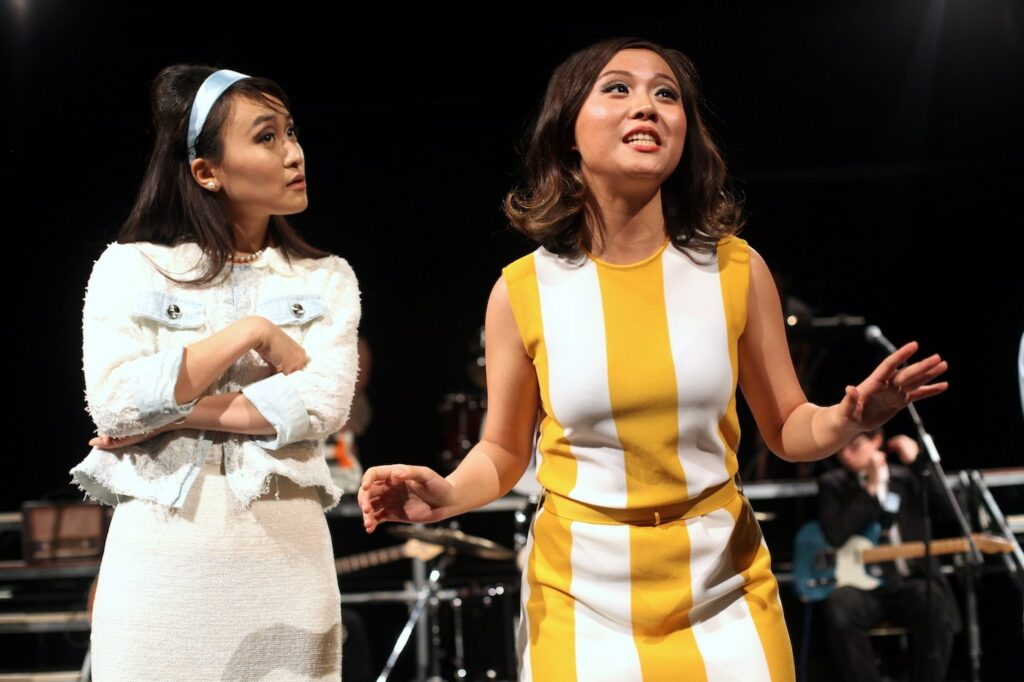
Maria and the Princess of France, styled in the 1960s HK fashion trend, in Love’s Labour’s Lost (2017). Photo courtesy Shax.
This explains why Shakespearean plays are constantly being revived around the world. According to research by the British Council conducted in 2016, “Shakespeare is more popular abroad than in the UK,” and the Bard’s work has been translated into 75 different languages. His popularity even reaches parts of Asia that do not share Hong Kong’s British colonial legacy. At this year’s Hong Kong Arts Festival, mainland Chinese playwright Hu Jun premiered The Tragedy of Hamlet, which he produced in collaboration with the Royal Shakespeare Company.
Hong Kong’s interest certainly does not seem to be waning. In 2016, Wong collaborated with the HKU Philharmonic to mark the 400th anniversary of Shakespeare’s death. That turned out to be a stepping stone to an even bigger project. Earlier this year, Wong was invited by the Hong Kong Philharmonic to co-produce Ode to Shakespeare, a play and concert featuring Dvořák’s “Othello” overture, Tchaikovsky’s “Romeo & Juliet Fantasy” overture, as well as Mendelssohn’s “A Midsummer Night’s Dream” overture and wedding march. “With a seasoned cast on board, now is the right timing for Shax to do something bigger,” says Wong.
With HKPhil as a partner, Wong hopes to expand Shax’s educational mission. “You can’t change the fact that the plays were written 400 years ago, or that most contemporary audience members aren’t comfortable with early modern English,” she says. “But everyone has heard of at least some of these masterpieces – even if you may not know that they were inspired by the three plays.”
To underline the playwright’s virtuosity, Wong and HKPhil have selected three of his most remarkable scenes, including Romeo and Juliet’s proclamation of love at the balcony, a passionate exchange between Othello and Desdemona, and the King and Queen of Fairies in a dreamy forest. Unlike her previous productions in Shakespearean English, Wong has arranged for Puck, a character from A Mid-Summer Night’s Dream, to narrate the three scenes in Cantonese and modern English narrator. She thinks this will help Hong Kong audiences best appreciate the spectrum of love and human quality that still resonates in Shakespeare’s work.
Wong is confident that this resonance will only grow stronger – and she foresees a steady climb in the number of Shakespeare performances in both Asia and Europe. Despite the overlapping themes between English and Chinese literature, there are still stark differences between the two cultures, which to Wong pose both challenges and opportunities for creative adaptation. Something may be lost in translating Shakespeare’s wordplay into Cantonese, but by re-contextualizing his stories in Asian settings, the universal themes on which he touches can have a greater impact than if his plays were adapted in a more traditional way.
“There’s a gap that Shax can fill,” says Wong. “We need more new blood for reinvigorating the great playwright’s works, and when more members from the young generation join the force, I hope my group will play a part in it too.”
This article originally appeared in Zolima CityMag on June 20, 2019, and has been reposted with permission.
This post was written by the author in their personal capacity.The opinions expressed in this article are the author’s own and do not reflect the view of The Theatre Times, their staff or collaborators.
This post was written by Zabrina Lo.
The views expressed here belong to the author and do not necessarily reflect our views and opinions.

